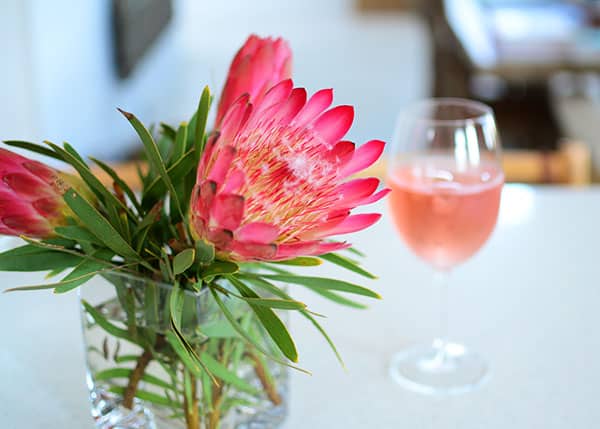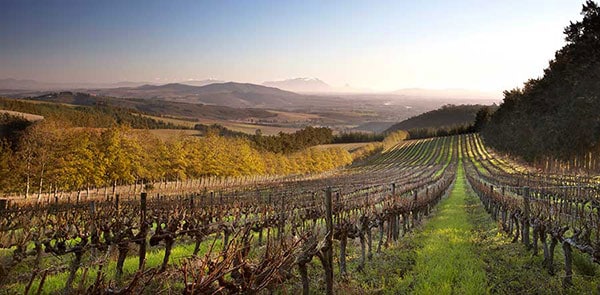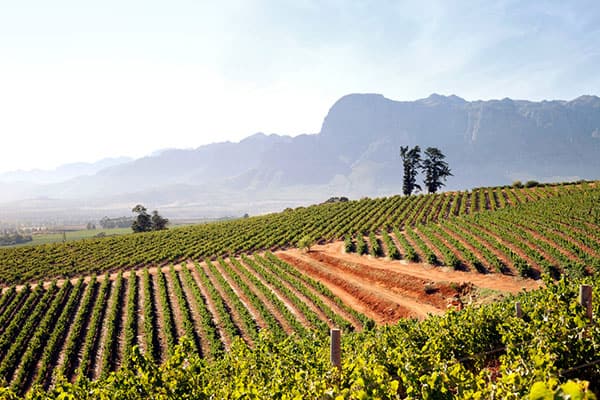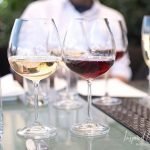WWF, along with Wine.co.za and Winelands Explore, recently teamed up to raise awareness of the Conservation Champion Wine Farms. These environmental industry leaders are doing fantastic work to conserve, protect and support our beautiful Cape Winelands.
Conservation Champions of The Cape Winelands
I am very privileged to have been invited to be an ambassador for the WWF Conservation Champions Movement. As fellow wine lovers, I urge you to join me in supporting this initiative to help promote a healthier ecosystem and sustainability within the wine industry.
Did you know that 95% of South Africa’s wine grows in the Cape Winelands? Amazingly this vast area under vine is also home to two global biodiversity hotspots, the Succulent Karoo and the Cape Floral Kingdom. Both of these hotspots are unique habitats found nowhere else in the world.
The early 2000s saw the rapid growth of the local wine industry, causing the “vineyard footprint” to expand into highly threatened conservation-worthy habitats. As a result, a unique and powerful partnership was formed between the conservation sector and the wine industry.
Conservation Champions Movement
Through a voluntary membership model, WWF works with the environmental leaders in SA’s wine industry. These Conservation Champions commit to biodiversity-friendly farming practices to help conserve their natural areas and improve their water and energy efficiencies.
They are also producing fantastic sustainable wines that promote a healthier ecosystem while farming together with nature. By choosing these wines, we can directly support the farms conserving our natural heritage.
One of my tasks as an ambassador for this fantastic initiative is to share more about these Champions of the Cape Winelands and what they are doing to help the environment. Below are three of the participating members who are collaborating with WWF. You can find the complete Conservation Champions list here.
Cloof Wine Estate
Cloof Wine Estate is located in the beautiful region of Darling on the West Coast of South Africa. Their unique terroir allows them to produce some of the most exceptional wines that this
part of the world has to offer.
Cloof has set aside roughly two-thirds of the farm for the conservation of the critically endangered Cape Lowlands Fynbos. The reserve is registered with Cape Nature as a voluntary conservation site as part of the Cape Nature Stewardship program.
They have also reintroduced local indigenous wildlife in a fenced area, which is managed closely to maintain conservative numbers. These include Eland, Gemsbok, Zebra, Springbok and grey Rhebuck. In addition, they sustainably manage farming activities ecologically and sensitively to minimize the further loss of threatened natural habitats and to contribute to sustainable wine production.
Delheim Wine Estate
Delheim Wine Estate can be found high on the slopes of the Simonsberg Mountain, 50 km from Cape Town. Here the Sperling family have been making wines of character for many decades.
Conserving nature is part of Delheim’s soul, having pursued the model of environmental conservation for its 80 years of existence. In fact, 89ha have been set aside for conservation. Planting fynbos corridors close to the vineyards keeps natural pests away as they find the thick indigenous vegetation more habitable.
The farm uses parasitic insects to neutralize the more harmful bugs, while planting cover crops inhibits weed growth, curbing the need for chemical spraying. These and numerous other measures for sustainable farming have resulted in Delheim continuing to be rich in fauna and flora. Over 50 species of birds and 120 different kinds of plants have been identified on the property. They believe that “the more natural the vineyard environment, the healthier and more expressive the grapes for the making of wine.”
Plaisir Wine Estate
Plaisir Wine Estate is situated at the foot of the Simonsberg Mountain between Paarl and Franschhoek. The wines they produce are inspired by the harmony of a rich history, the fertile soil and lush vineyards.
The estate has a permanent team of 5 people who remove all invasive plant species on an ongoing basis, which improves the underground water supply and reduces the fire risk, allowing natural vegetation to return. Wood chips are used in vineyards to assist with moisture retention and to keep weeds under control.
There is also a creation of natural corridors when old vineyards are removed, which not only improves soil health but reduces carbon emissions and allows the natural fauna and flora to exist in harmony with agricultural practices.
In Closing
I hope that you have found this feature informative and that it has inspired you to support WWF’s Conservation Campions and purchase with purpose!
Images
©2010 – 2023 Inspired Living SA and Fiona Rossiter. Please do not use any images featured on this website without written consent from the copyright holder and owner.
Disclosure & Disclaimer
All opinions, content and images are the property of Inspired Living SA or Fiona Rossiter unless otherwise stated.









Leave a Reply